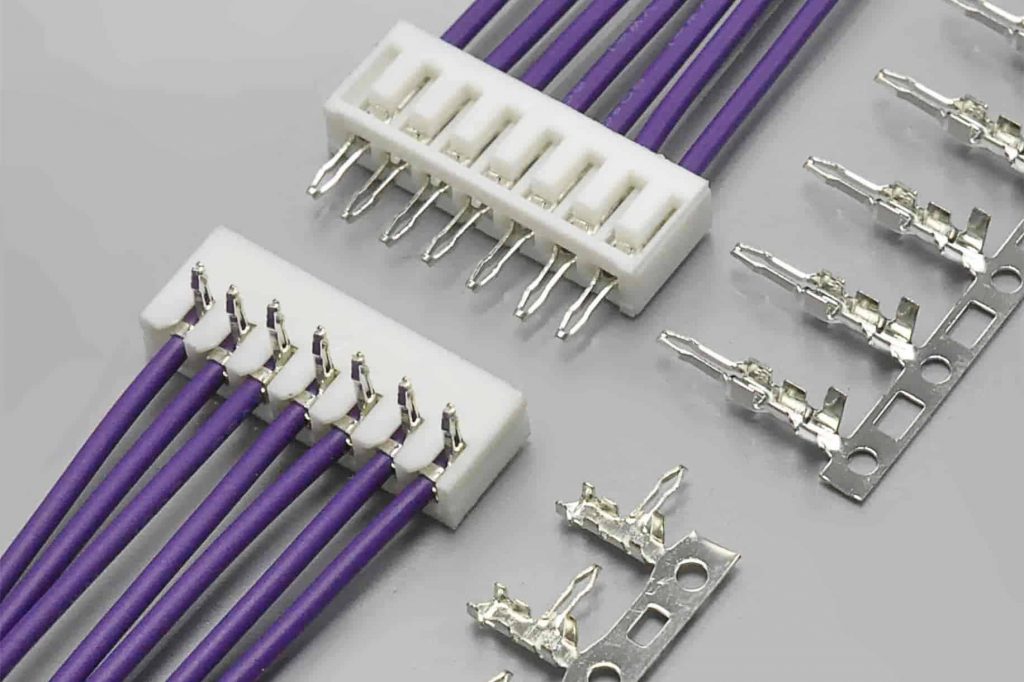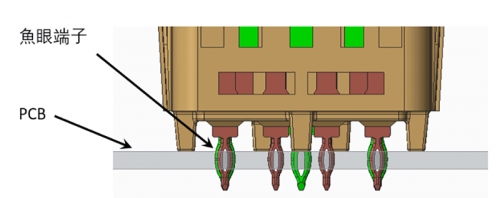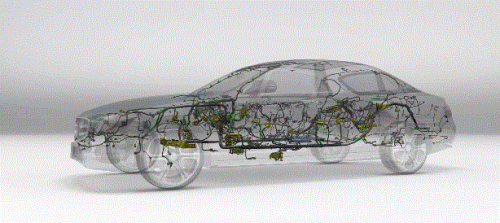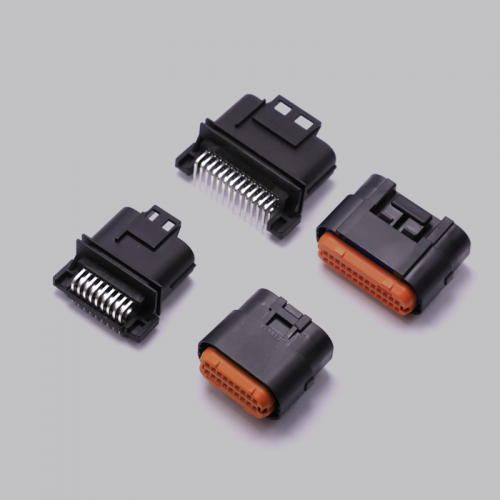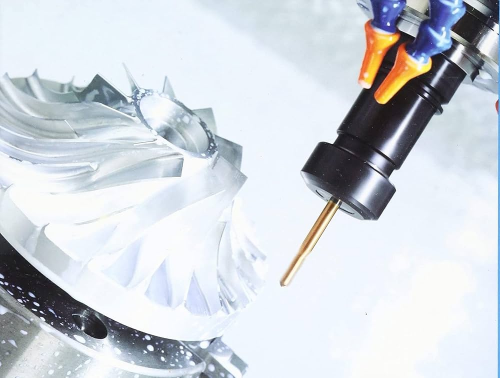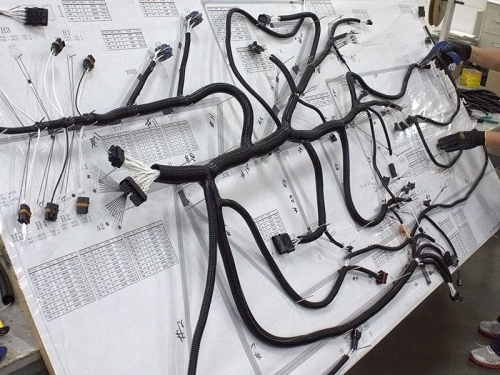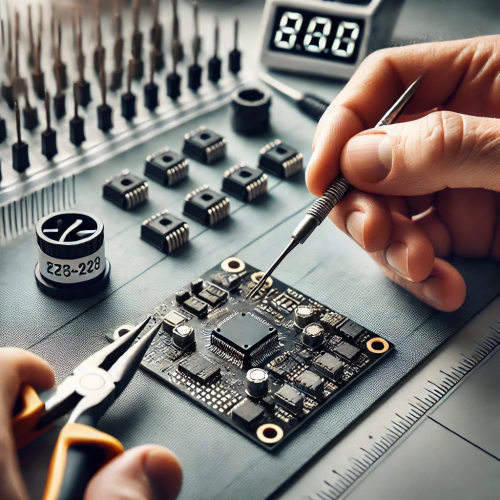At Konnra, we specialize in producing and selling top-notch connectors and wire harnesses. Today, we want to share some insights into the vital process of environmental testing for SCN connectors. If you’re wondering why all this testing fuss matters or how it can impact your projects, you’ve come to the right place. Our goal is to help you understand the importance of these tests and how Konnra’s expertise can guide you in selecting the best connectors for any application. Let’s dive into the details and show you how we can support your needs.
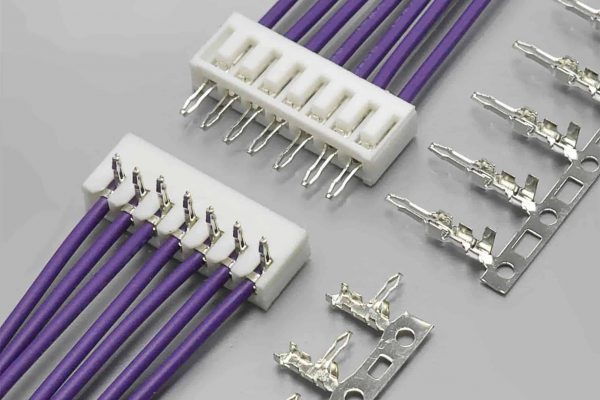
1. Necessity of Environmental Testing
Why Environmental Testing is Crucial for SCN Connectors
Environmental testing is vital for SCN connectors because it ensures that these components can perform reliably under extreme conditions. The purpose of such testing is to simulate the harsh environments that connectors might encounter in real-world applications, ensuring they can withstand factors like temperature fluctuations, humidity, salt spray, and mechanical vibrations.
In industries like aerospace, military, and industrial automation, the performance of SCN connectors is critical. Failures in these environments can lead to significant downtime, costly repairs, and even safety hazards. Therefore, rigorous environmental testing is not just a regulatory requirement but a necessity for maintaining operational integrity and safety.
Applications of SCN Connectors
SCN connectors are used in a variety of demanding environments. In industrial settings, they connect machinery and control systems, often exposed to dust, moisture, and extreme temperatures. In military applications, SCN connectors must endure harsh battlefield conditions, including shock, vibration, and exposure to chemicals. In aerospace, these connectors play a crucial role in ensuring the safety and reliability of aircraft systems, where failure is not an option. Understanding the specific challenges of each application highlights the importance of thorough environmental testing.
2. Major Types of Environmental Testing
Temperature Cycling Test
One of the most critical tests for SCN connectors is the temperature cycling test. This process involves exposing the connectors to extreme temperature changes, typically ranging from -55°C to +125°C. The goal is to simulate the conditions that connectors will face in the field, where they may need to operate in both extremely cold and hot environments.
During this test, connectors are repeatedly cycled between high and low temperatures to assess their ability to maintain performance without degradation. This helps identify any potential issues related to thermal expansion and contraction, which can cause connectors to fail over time.
Humidity Test
Humidity can significantly impact the performance of SCN connectors, especially in environments where moisture is prevalent. The humidity test evaluates how well connectors can withstand prolonged exposure to high humidity levels. Typically, connectors are subjected to a controlled environment with high humidity, often around 95%, at elevated temperatures.
This test helps determine the connectors’ resistance to moisture ingress, which can lead to corrosion and electrical failures. By ensuring that SCN connectors can handle humid conditions, manufacturers can provide reliable products for use in environments like tropical climates or indoor industrial settings.
Salt Spray Test
The salt spray test is crucial for connectors used in marine or coastal environments, where exposure to salt can cause rapid corrosion. During this test, SCN connectors are placed in a chamber and exposed to a fine mist of saltwater solution for an extended period, usually 48 to 1,000 hours, depending on the test standard.
This test assesses the corrosion resistance of the connectors, ensuring that they can maintain electrical conductivity and mechanical integrity despite exposure to corrosive environments. This is especially important for connectors used in naval applications or outdoor installations near the sea.
Vibration and Shock Test
Mechanical stability is another critical aspect of SCN connector performance. The vibration and shock test subjects connectors to mechanical vibrations and sudden impacts, simulating the conditions they might face during transportation, installation, or operation in dynamic environments.
By testing connectors under these conditions, manufacturers can ensure that they remain securely connected and functional, even when subjected to significant physical stress. This is particularly important for military and aerospace applications, where reliability under duress is paramount.
3. Materials and Design of SCN Connectors
Impact of Material Selection
The choice of materials used in SCN connectors significantly impacts their performance under environmental stress. Materials must be selected for their corrosion resistance, thermal stability, and mechanical strength. For example, connectors often use high-quality metals like gold or tin-plated contacts to ensure excellent conductivity and corrosion resistance.
Additionally, the housing materials must be durable and capable of withstanding harsh conditions. Plastics with high impact resistance and low moisture absorption are commonly used. By carefully selecting materials, manufacturers can enhance the connectors’ ability to endure extreme environments.
Sealing Design
Effective sealing is crucial for protecting SCN connectors from environmental contaminants like dust, moisture, and chemicals. The design of seals and gaskets ensures that no foreign substances can enter the connector housing and compromise its performance.
Advanced sealing technologies, such as o-rings and grommets, are used to provide airtight and watertight seals. This design consideration is especially important for connectors used in outdoor or submerged applications, where exposure to water and other contaminants is unavoidable.
4. Testing Standards and Certifications
Relevant Standards and Specifications
To ensure the quality and performance of SCN connectors, manufacturers adhere to several industry standards and specifications. Key standards include MIL-STD for military applications, IEC standards for industrial applications, and other relevant certifications depending on the specific use case.
For instance, MIL-STD-810G outlines environmental test methods for military equipment, including tests for temperature, humidity, and vibration. Adhering to these standards ensures that SCN connectors can meet the stringent requirements of their intended applications.
Importance of Certification
Certification is a crucial aspect of ensuring that SCN connectors meet industry standards and provide reliable performance. Certified connectors have undergone rigorous testing and have been verified by independent organizations to meet specific criteria.
For consumers, certification provides peace of mind that the connectors they purchase will perform as expected in their intended environments. It also signifies that the manufacturer is committed to quality and reliability. One such trusted manufacturer is China Connector Corporation, which is known for its high-quality, certified SCN connectors.
5. Common Issues and Solutions
Common Environmental Testing Issues
Despite rigorous testing, some common issues can arise during the environmental testing of SCN connectors. Corrosion, contact resistance, and mechanical failure are among the most frequent problems. Corrosion can occur if the connectors are not adequately protected against environmental factors, leading to electrical failures. Increased contact resistance can result from poor material selection or inadequate sealing, affecting the connector’s performance.
Practical Solutions
Addressing these issues requires a combination of robust design, high-quality materials, and stringent testing protocols. For instance, using corrosion-resistant materials and coatings can significantly enhance the longevity of connectors in harsh environments. Improving sealing technologies can prevent moisture and contaminants from entering the connector housing, reducing the risk of corrosion and electrical failures.
Manufacturers can also employ advanced testing methods to detect potential issues early in the design phase. By continuously monitoring and improving their testing processes, they can ensure that their connectors meet the highest standards of reliability and performance.
Consumer Concerns
When selecting SCN connectors, consumers often have several concerns, such as the connector’s ability to withstand environmental stress, its reliability, and its longevity. To address these concerns, consumers should look for connectors that have been certified and meet industry standards. Reviewing test results and manufacturer certifications can provide valuable insights into the connector’s performance and reliability.
Conclusion
When selecting SCN connectors, it’s crucial to consider the environmental testing results and certifications. By choosing connectors that have undergone rigorous testing and meet industry standards, you can ensure reliable performance in any environment. At Konnra, we highly recommend our KR2508 Series SCN Board In Connector. This product stands out for its exceptional durability and reliability, having passed all critical environmental tests with flying colors. Ready to experience the difference? Explore the KR2508 Series and see how it can enhance your projects.
